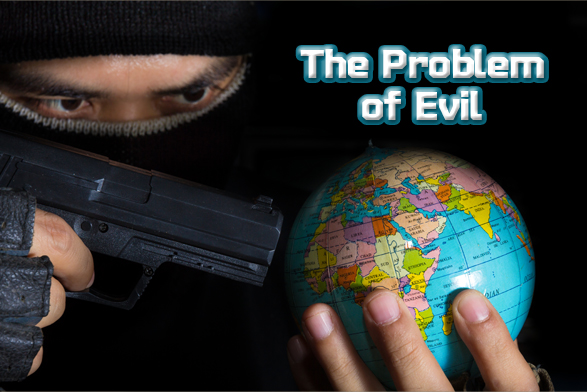It depends on how you define slavery. Slavery in the ancient world encompassed a lot more than the slavery in the antebellum American South in the 1800’s. Slavery has been around for thousands of years and still exists today in many countries, especially the Far East and Muslim countries. It’s not just between blacks and whites but more often between religions or tribes or one country against another.
In the ancient world, slavery could be for everything from something similar to an employer-employee relationship to outright ownership of a human being. If you needed to borrow money, you could hire yourself or your children out to a rich person. Under this arrangement, the slave owner did not have complete ownership of his ‘slave’. The slave had certain rights. On the other extreme, the slave owner had complete ownership over his slave. In-between these extremes was a continumn of arrangements. Some slaves were civil servants who had prestigious roles and commended power & respect. Others did manual labor, some were teachers or artisans. Slavery in ancient Israel is not the concept you think of in modern US or western countries. If you were convicted of a crime of theft for instance you were indentured to the person you committed the theft against. There were not prisons in those times so most punishment was a form of repatriation for crime committed and physical punishment was a necessity when no steel bar existed or cameras or such. It was not some innocent person in slavery to someone. Actually it was someone repaying a crime they committed to the person. Even famous people like Plato & Aristotle approved of slavery. While many slaves were able to purchase their freedom, a good number of them choose not to because of the security their master offered them (food, clothing, shelter, etc.). Slave revolts rarely sought to abolish the institution but only protest it abuses. Still, the abuses were horrific! Families were ripped apart, women were raped by their masters and left to raise their children as slaves, they were beaten and whipped, many died from the beatings and many lived their whole lives as slaves. Modern people are sickened by these abuses. But this was common in the ancient world. The ancient world was a place that lacked compassion for their fellow human beings.
Because God meets us where we’re at, the law of Moses sought to mitigate & limit slavery instead of abolishing it. God instituted laws for Israel that applied to their current situation. Compared to the slavery laws of their surrounding neighbors, the laws of Moses were quite humane and a definite improvement. Even Jesus referred to Moses’ law on divorce as being less than ideal but necessary because of human sin and our hard-heartedness. (Matthew 19:8).
The laws of Moses addressed abuses so that masters did not have absolute rights over their slaves. For example;
– a master could lose his own life if he killed his slave (Exodus 21:20,23)
– if a master inflicted bodily injury to his slave, the slave was automatically freed
(Exodus 21:23-26)
– the slave had a day of rest each week (Exodus 20:10 & Deuteronomy 5:14)
– slaves who ran away from abusive masters were to be protected and not returned to
their master (Deuteronomy 23:15,16)
– all Jewish slaves were freed every 7 years (Exodus 21:2, Deuteronomy 15:12 &
Jeremiah 34:14)
– Jewish slaves couldn’t be sold by their masters (Leviticus 25:42)
– Read Job 31:13-15
Biblical scholars have noted that Old Testament slaves having legal rights and intrinsic worth as human beings was nothing short of revolutionary for its day.
By New Testament times, slaves were to be treated as ‘brothers and sisters’ and not property. Ephesians 6 and Colossians 4 give specific rules for masters on how to treat their slaves, as fellow believers in Jesus. In 1st Timothy 1:9,10, Paul condemns slave traders for violating the 8th commandment (“You shall not steal”). Paul reminds Christian masters that they themselves are slaves to Christ (Colossians 3:22-25) and their slaves, like them, are members of the body of Christ. Paul also reminds the masters that, before God, slaves are equals (Galatians 3:28 & Colossians 3:11). These comments were outrageous in their day.
There have been a few Christians who have supported slavery but they were WRONG. Historically, Christianity has worked for the abolition of slavery.
– in 315 AD, Roman Emperor Constantine imposed the death penalty on those who would
kidnap children to bring up as slaves.
– The emperor Justinian (527-565AD) abolished all laws that prevented freeing slaves
– the 4th century Christin, Lactanuis, said that in God’s eyes, there were no slaves.
– St. Augustine saw slavery as sin and contrary to God’s for humanity.
By the 14th century, slavery had almost disappeared in Europe. Unfortunately, it was revived in England’s colonies in the 17th century. Then it was defeated in all the British Empire by the Christian William Wilberforce and his Christian friends. The American abolitionist movement was largely made up of Christians. By 1835 two thirds of it was Christian ministers. Many southerners, like Generals Robert E. Lee and Thomas “Stonewall” Jackson detested slavery. Lee treated his slaves like family members. He freed his slaves before Union General Grant did his.
To those skeptics who deny slavery was first abolished in the western world as a result of Christianity’s influence, answer these questions;
– was slavery first abolished in countries where Christianity had a major or minor
influence?
– did Christianity have a major or minor influence in countries that retained slavery into
the 21st century?
The answers to these questions make it clear that Christianity and slavery are poor bed-fellows. History shows a high correlation between Christianity and the abolition of slavery. Christianity is not a segregated religion. It offers itself without restriction to all people, classes and nations. The largest growth in 21st century Christianity is in third world countries like Africa and South America.
Book references:
“How Christianity Changed the World” by Dr. Alvin Schmidt, chapter 11
“That’s Just Your Interpretation” by Dr. Paul Copan, chapter 19
“Christianity on Trial” by Carroll & Shiflett, chapter 2








